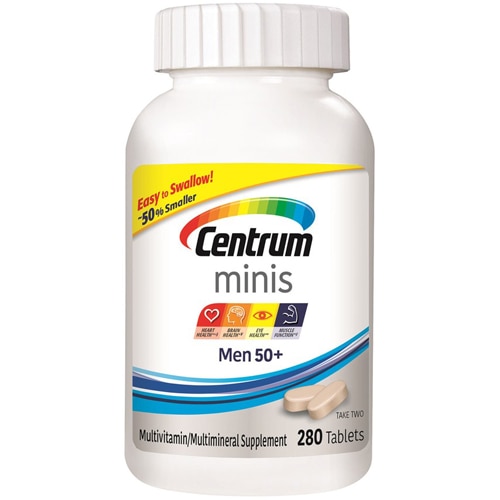[vc_row][vc_column][vc_column_text]Evidence abounds regarding how loneliness is damaging our health, even without the stratospheric stress levels related to the COVID-19
pandemic.
For instance, a study published in 2023 in the medical journal JACC: Heart Failure shows that
loneliness and social isolation are linked to higher rates of heart failure. However, loneliness plays a bigger role in this risk than social isolation does.

Other proof of how loneliness is damaging our health includes:
- In a study of 4,400 Medicare patients, those who reported being lonely had a greater risk of death 30 days after non-elective surgery than those who didn’t report being lonely.
- A study of 20,000 sub-Saharan adolescents found that loneliness, hunger, anxiety and substance use were associated with suicidal thoughts.
- Research indicates that experiencing loneliness as a pre-adolescent child foreshadows problem drinking during early adulthood.
Other
health issues connected to loneliness and social isolation include heart disease, stroke, weakened immunity, anxiety, depression and Alzheimer’s disease, according to the National Institute on Aging.
“The misery and suffering caused by chronic loneliness are very real and warrant attention,”
says Stephanie Cacioppo, a neuroscientist who has extensively studied loneliness. “As a social species, we are accountable to help our lonely children, parents, neighbors, and even strangers in the same way we would treat ourselves. Treating loneliness is our collective responsibility.”
So, if you count yourself among the lonely or someone you know does, what can be done to treat loneliness? Here are six suggestions.
How to overcome loneliness
1. Lean on your partner
A study published in the European Journal of Ageing suggests that
older adults with a partner are generally less lonely than their unpartnered counterparts.
“As the population of unpartnered and childless older adults grows globally, future public health strategies should seek a balanced mitigation approach that also considers the consequences of isolation, particularly for populations who are already at higher risk for loneliness,” the study says.
2. Attend a live sporting event
Cheering on your favorite football, baseball or basketball team in person may help combat loneliness, research indicates.
A
study published in the journal
Frontiers in Public Health shows that attending live sporting events reduces feelings of loneliness among fans and improves their wellbeing.
Helen Keyes, lead author of the study, says in a news release that social interaction at live sporting events helps “forge group identity and belonging, which in turn mitigates loneliness and boosts levels of wellbeing.”
3. Take care of the kids
A
comprehensive research review published in the journal Aging and Mental Health shows that for adults over 50, caring for grandchildren and other kids is linked to a lower level of loneliness. Participating in volunteer activities also appears to ease loneliness among over-50 adults.
Matthew Prina, co-author of the study, says in a news release that further research “could help shed light on the optimal ‘dose’ of volunteering and caring for grandchildren, and identify ways to maximize their potential beneficial effects on combating loneliness in the over-50s.”
4. Tend to the garden
We know that gardening can produce a rainbow of flowers and a cornucopia of vegetables. But gardening also may help cope with loneliness.
A British study found that people who
regularly volunteered at community gardens during the pandemic saw a decrease in loneliness. The study was published in the International Journal of Environmental Research and Public Health.
Matt King is CEO of mental health charity Trust Links, which promotes the benefits of community gardening. He says in a news release that “therapeutic community gardening projects have a powerful impact on mental health and wellbeing, improving connections with other people, providing positive activities, giving people’s lives meaning and hope, and enabling people to spend time outdoors with nature.”
5. Get moving
Several studies draw a parallel between regular physical activity and decreased loneliness. In other words, it may be time to dust off your treadmill.
One of these studies,
published in the journal Geriatric Nursing, found that among adults over 65, moderate and high levels of physical activity were associated with a 15% to 30% likelihood of experiencing loneliness or social isolation.
Meanwhile, in a
British survey by the nonprofit organization Better, a provider of leisure, health and community services, 54% of people listed walking or running as the best remedy for reducing loneliness and anxiety. Ranking higher were socializing with friends and family (67%) and listening to music or reading (59%).
6. Enjoy a dose of vitamin D
Vitamin D, known as the “sunshine vitamin,” may play a part in feeling a bit sunnier.
The vitamin helps produce dopamine, endorphins, oxytocin and serotonin, all of which are “feel good” hormones. In turn, these hormones may contribute to someone feeling less lonely.
Sunlight is the ideal source of
vitamin D; our skin’s exposure to sunlight helps synthesize the vitamin. Vitamin D also can be found naturally in foods like fatty fish (think salmon and tuna) and in vitamin-fortified foods such as yogurt and cereal, as well as in dietary supplements.
Don’t want to expose yourself to more sunlight, boost your intake of foods rich in vitamin D or take a
dietary supplement? Try a hug or kiss. Science tells that physical contact also can release dopamine, endorphins, oxytocin and serotonin.[/vc_column_text][/vc_column][/vc_row][vc_row][vc_column][vc_text_separator title="Featured Products" border_width="2"][vc_row_inner equal_height="yes" content_placement="middle" gap="35"][vc_column_inner width="1/3"][vc_single_image image="166524" img_size="full" alignment="center" onclick="custom_link" img_link_target="_blank" css=".vc_custom_1682985307349{padding-right: 7% !important;padding-left: 7% !important;}" link="https://www.vitacost.com/nordic-naturals-energy-mushroom-complex"][/vc_column_inner][vc_column_inner width="1/3"][vc_single_image image="166523" img_size="full" alignment="center" onclick="custom_link" img_link_target="_blank" css=".vc_custom_1682985322873{padding-right: 7% !important;padding-left: 7% !important;}" link="https://www.vitacost.com/natures-way-mood-lift"][/vc_column_inner][vc_column_inner width="1/3"][vc_single_image image="166525" img_size="full" alignment="center" onclick="custom_link" img_link_target="_blank" css=".vc_custom_1682985338249{padding-right: 7% !important;padding-left: 7% !important;}" link="https://www.vitacost.com/vitacost-vitamin-d3-mini-gels-125-mcg-5-000-iu-100-softgels"][/vc_column_inner][/vc_row_inner][/vc_column][/vc_row]
 Other proof of how loneliness is damaging our health includes:
Other proof of how loneliness is damaging our health includes:



